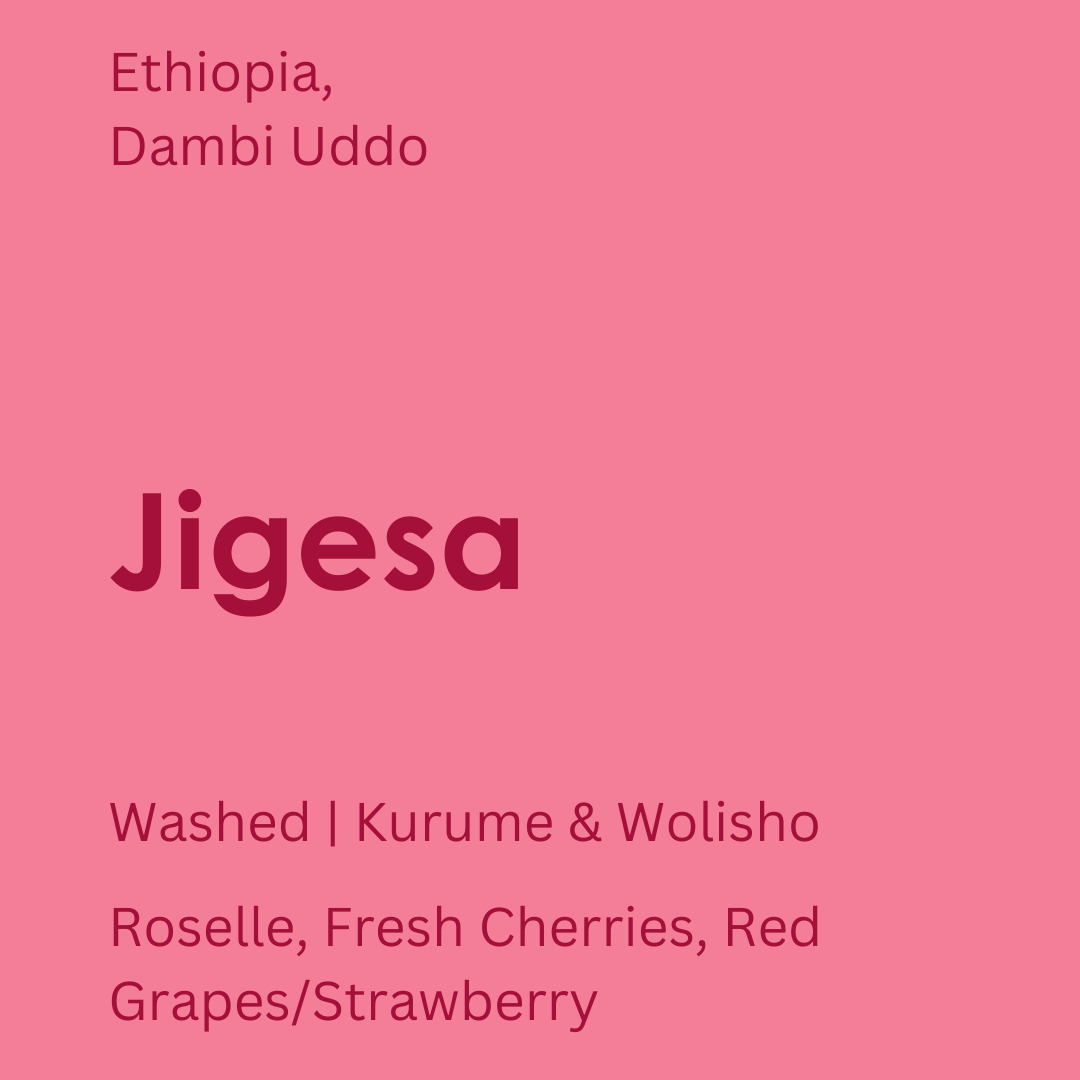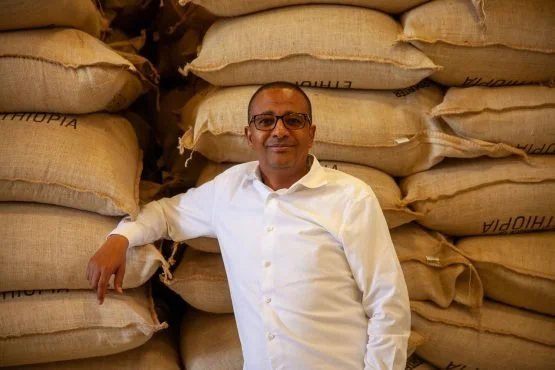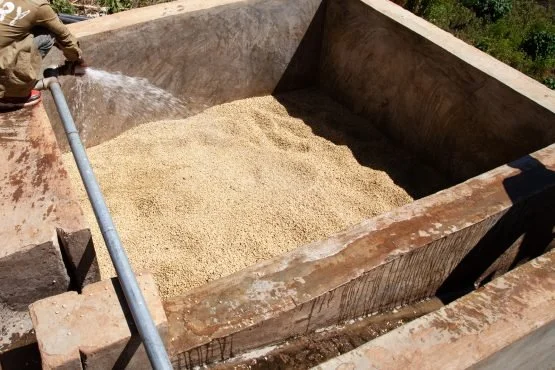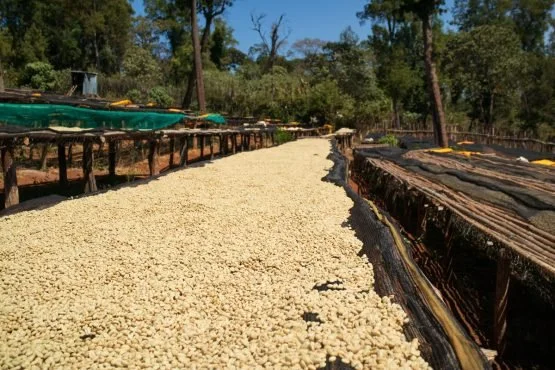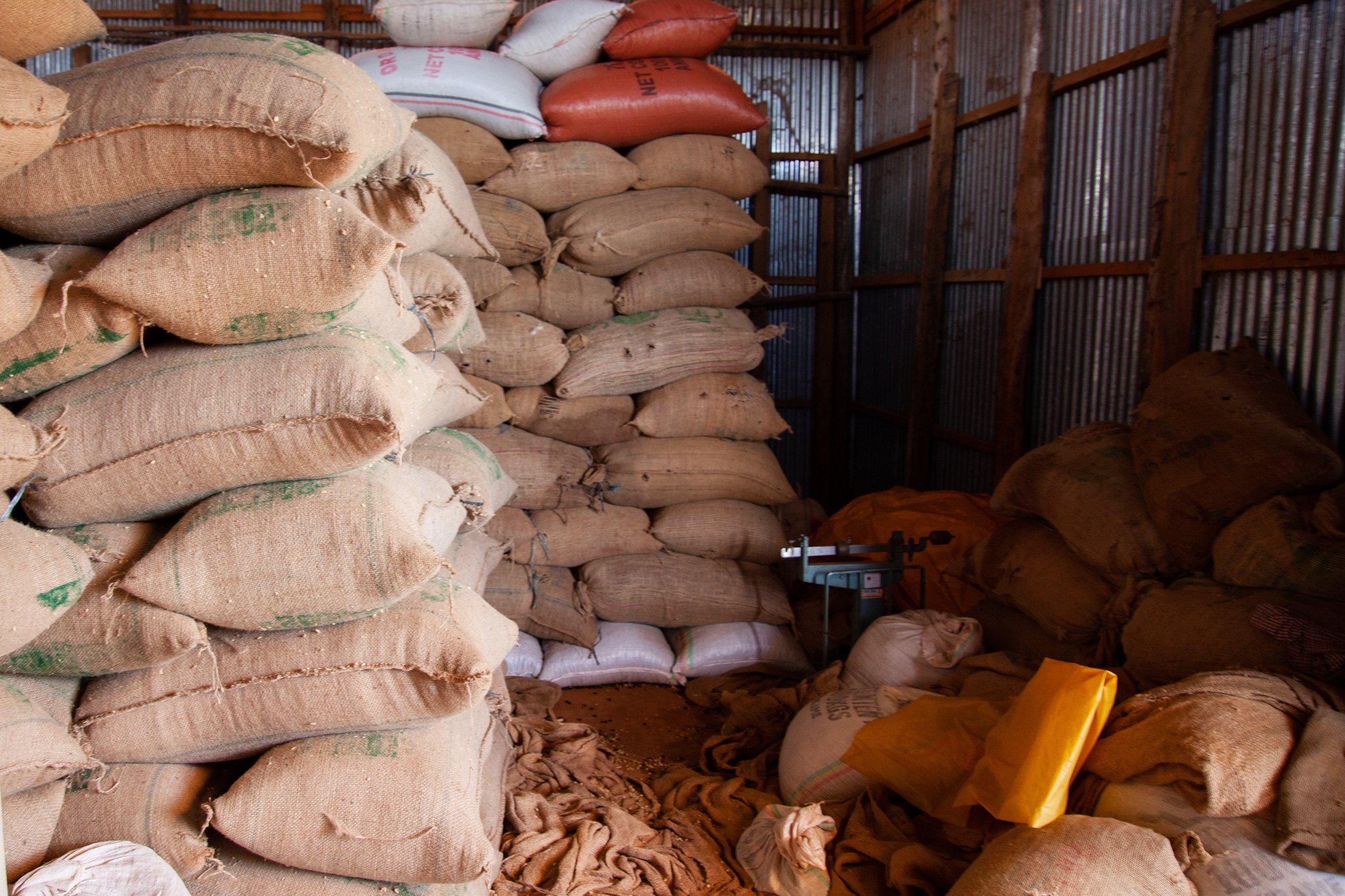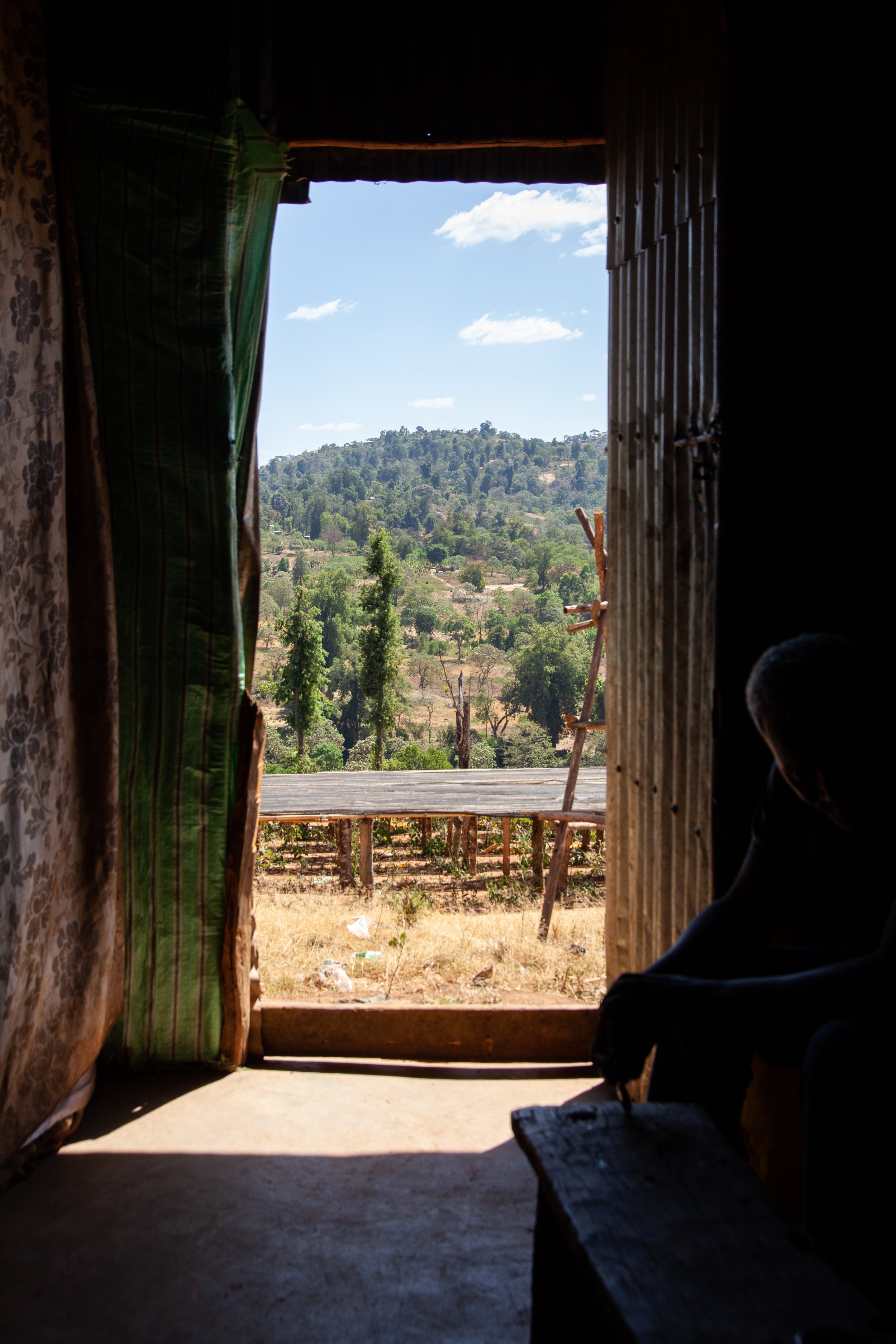Jigesa (pronounced “Jee-geh-sa”) is a privately-owned washing station that is located in the Shakisso woreda (administrative district) in Ethiopia’s Guji zone. It is named after the kebele (local village) of Jigesa. It was the first of 28 washing stations established by Testi Coffee, a family-owned company founded by Mr. Faysel A. Yonis.
Sitting at 1,851m above sea level, Jigesa produces exceptional washed and natural processed lots. The washing station was established in 2014, and currently employs between 250-260 seasonal workers—around 200 of them are women who hand-sort parchment, while the remaining 50 work at the onsite dry mill. During harvest, freshly picked coffee cherry is delivered daily by some 500 independent outgrowers from the nearby kebele of Dambi Uddo and collection points in Wese and Suke.
The majority of the families that contribute to this lot farm organically on tiny plots of land, which average just two to five hectares in size. Coffee is their main cash crop and grows alongside food crops of corn, grain and bananas, under the shade of native Birbira, Wanza, and Acacia trees. The average elevation of the farms in this region is very high – around 1,800–2,050m above sea level – and this, combined region’s cool temperatures (which range between 15-20°C) is ideal for the slow ripening of coffee cherries, leading to denser beans and a sweeter, more complex cup profile.
This coffee has been processed using the washed method, using clean water from the Mormora and Bishan Dimo rivers. It is classified as Grade 1.
Each day, carefully hand-picked coffee cherries are delivered to the Jigesa washing station and are meticulously sorted by hand and in a flotation tank prior to processing to remove unripe, overripe, or damaged fruit.
After sorting, the coffee cherries are then pulped within six to eight hours since harvest, thereafter the fruit is removed and graded by weight; heavier beans are of superior quality and deliver a sweeter cup. After grading, the parchment-covered coffee is soaked in tanks of clean water for 36–48 hours to remove the mucilage (sticky fruit pulp) by allowing it to ferment and detach from the coffee.
The coffee is then re-washed and graded again by density in washing channels and soaked in clean water for 12 hours. While doing this, mill workers keep a close eye on the clarity of the water being used (and replace it with fresh water as necessary), and check the parchment manually to feel how much mucilage is left on the seeds. As the texture of the washed seeds changes, and mill workers notice slightly more traction, the parchment is just about ready to be dried.
The coffee is then dried on raised drying beds and under a parabolic shade net for 5-7 days depending on weather conditions. Whilst drying, the coffee is carefully hand-sorted, and any defects are removed. It is also turned regularly to ensure that it dries evenly and consistently. Once the coffee is dry and has reached its desired humidity, it is rested in parchment until it is ready for milling and export.

